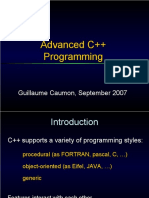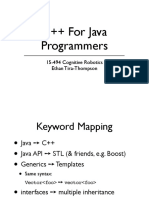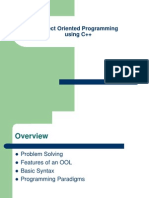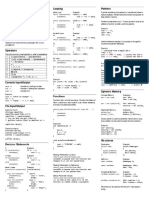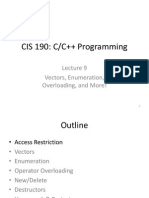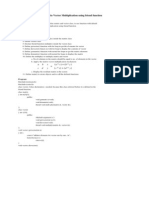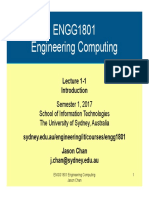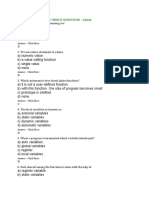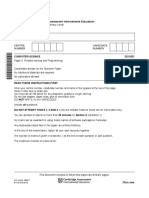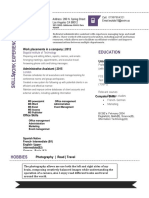0% found this document useful (0 votes)
108 views28 pagesCS11 - Advanced C++: Winter 2009-2010
This document discusses implementing a ray tracer project in C++. It will focus on basic ray tracing features like spheres, planes, and cylinders. The project will start by implementing fundamental abstractions like a 3D vector class and RGB color class. Guidelines are provided for implementing operator overloading and stream output for these classes. Specific techniques discussed include implementing fixed-size vector classes with [] and () access, overloading operators like * and / as non-member functions, and implementing stream output for class hierarchies.
Uploaded by
Jef JronCopyright
© Attribution Non-Commercial (BY-NC)
We take content rights seriously. If you suspect this is your content, claim it here.
Available Formats
Download as PDF, TXT or read online on Scribd
0% found this document useful (0 votes)
108 views28 pagesCS11 - Advanced C++: Winter 2009-2010
This document discusses implementing a ray tracer project in C++. It will focus on basic ray tracing features like spheres, planes, and cylinders. The project will start by implementing fundamental abstractions like a 3D vector class and RGB color class. Guidelines are provided for implementing operator overloading and stream output for these classes. Specific techniques discussed include implementing fixed-size vector classes with [] and () access, overloading operators like * and / as non-member functions, and implementing stream output for class hierarchies.
Uploaded by
Jef JronCopyright
© Attribution Non-Commercial (BY-NC)
We take content rights seriously. If you suspect this is your content, claim it here.
Available Formats
Download as PDF, TXT or read online on Scribd
/ 28
